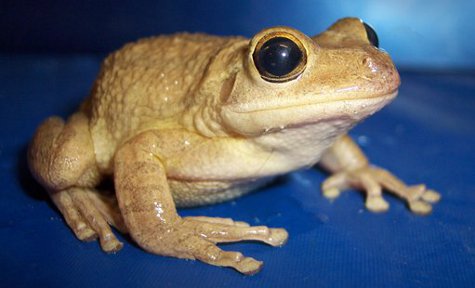
(Georgia Recorder) — Dorothy and Toto aren’t the only ones known to hitch a ride on a passing severe weather event.
A map from the U.S. Geological Survey finds that there are 222 possible non-native species that had the potential to spread in Georgia and Florida due to storm-related flooding from Hurricane Helene, which devastated southern states including Georgia in September. The list includes 90 species considered invasive and likely to spread via flood waters.
And while the famous Kansas duo’s trip to the magical land of Oz was bad news for the Wicked Witch of the East, these out-of-place critters are potential problems for all Georgians, said Mike Worley, president of the Georgia Wildlife Federation.
“These plants or animals come into an area, and they are uniquely adapted to the area in which they evolved, and they generally will have their own set of predators, they’ll have checks on their population, but they come into a new area – and all these invasive species are getting here because we’re bringing them in some way, either intentionally or accidentally – and suddenly they find a new niche in the world where there’s no checks on them,” he said.
Without those checks, invasive species can decimate native creatures, which can disrupt the entire food chain.
“If you live in Georgia because you like Georgia, then invasives are a problem because they can fundamentally change it. They can fundamentally change the nature, they can change the very essence of what we are,” Worley added.
The species monitored in the USGS’s map include everything from plants and algae to fish, reptiles, and crustaceans. The survey provides an interactive map of where different species have already been seen and where Helene-related flooding may have washed them up.
One creature on the list is the Cuban treefrog, a native to the island nation that has spread to Florida, Georgia, and other spots across the continental U.S., usually through food or plant shipments, especially palm trees, or hidden in building materials.
They look cute, but the slimy little fellas can cause a lot of trouble. According to the USGS, not only do they compete with and even prey on native treefrogs, but they have been found to host diseases and parasites that can harm humans and other frogs, and their skin secretes a chemical that can irritate the skin and eyes, and they have even been observed to cause power outages when in contact with electrical equipment.
The USGS map shows they have the potential to spread via flooding around the north and south metro Atlanta areas as well as near Augusta, Peachtree City, Valdosta, and Waycross.
Even plants can cause problems if they wash up in the wrong part of the world. Take the alligator weed, which grows natively in the Parana River region of South America, in Brazil, Paraguay, Argentina and Uruguay, where its hollow stems help it to float on the water in thick mats. They’ve established footholds in areas across the southeast and all along the Gulf of Mexico stowing away in ship ballast water, researchers believe.
When clusters of alligator weed show up unannounced, they can impede the flow of water, decreasing water quality and harming other species that live in the water or depend on it for food. They can be a nuisance to boaters by blocking waterways and to farmers by clogging up irrigation channels, and to add insult to injury, they make excellent breeding grounds for pests like mosquitos.
As if that weren’t bad enough, a new plant can grow from a cut off piece of an old one, which makes getting rid of them even more challenging once they have become established.
Before the storm, these meanie greenies were already present in watersheds from Athens to Valdosta, and researchers say they could be popping up in new bodies of water.
But while only a wonderful wizard can control the weather, there are steps Georgians can take to keep critters where they belong, Worley said. For campers, that means not bringing in firewood from other states; for boaters, it means cleaning out your systems before moving on to the next lake or stream; and for gardeners, it can mean only planting native vegetation in your yard.






